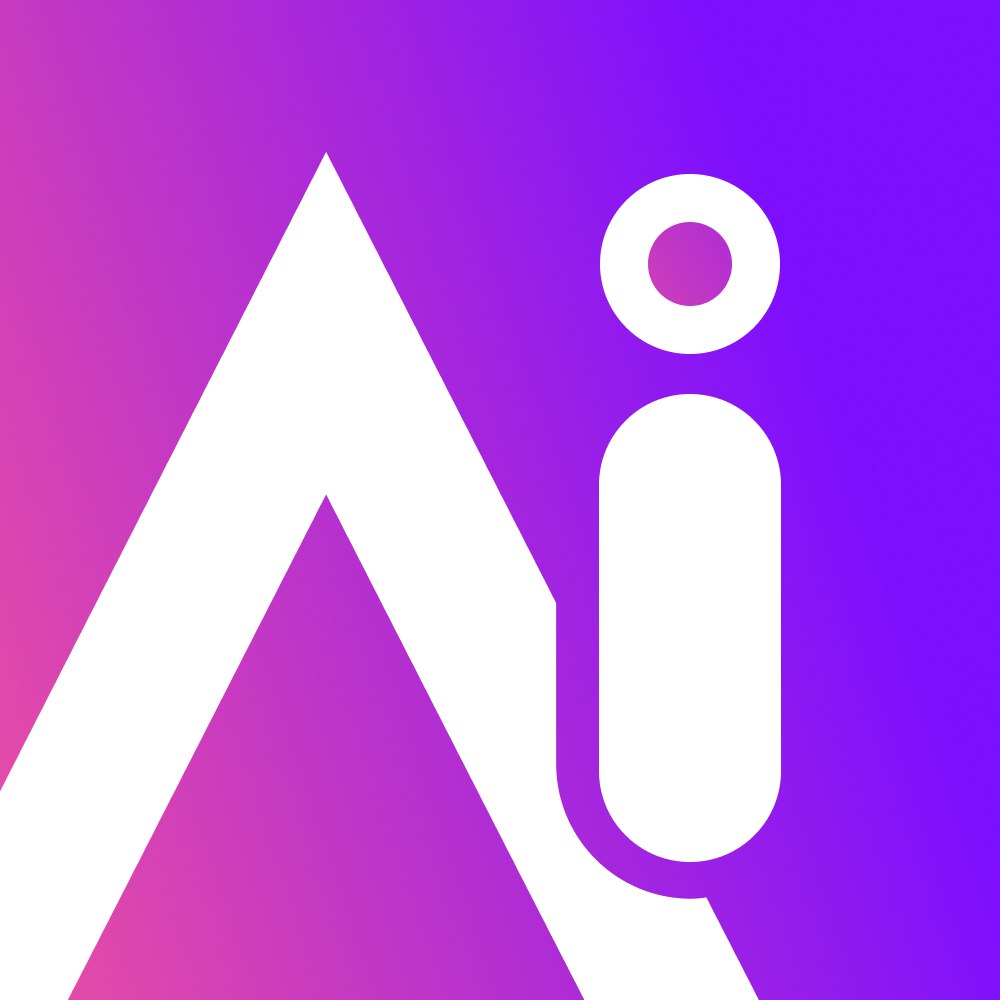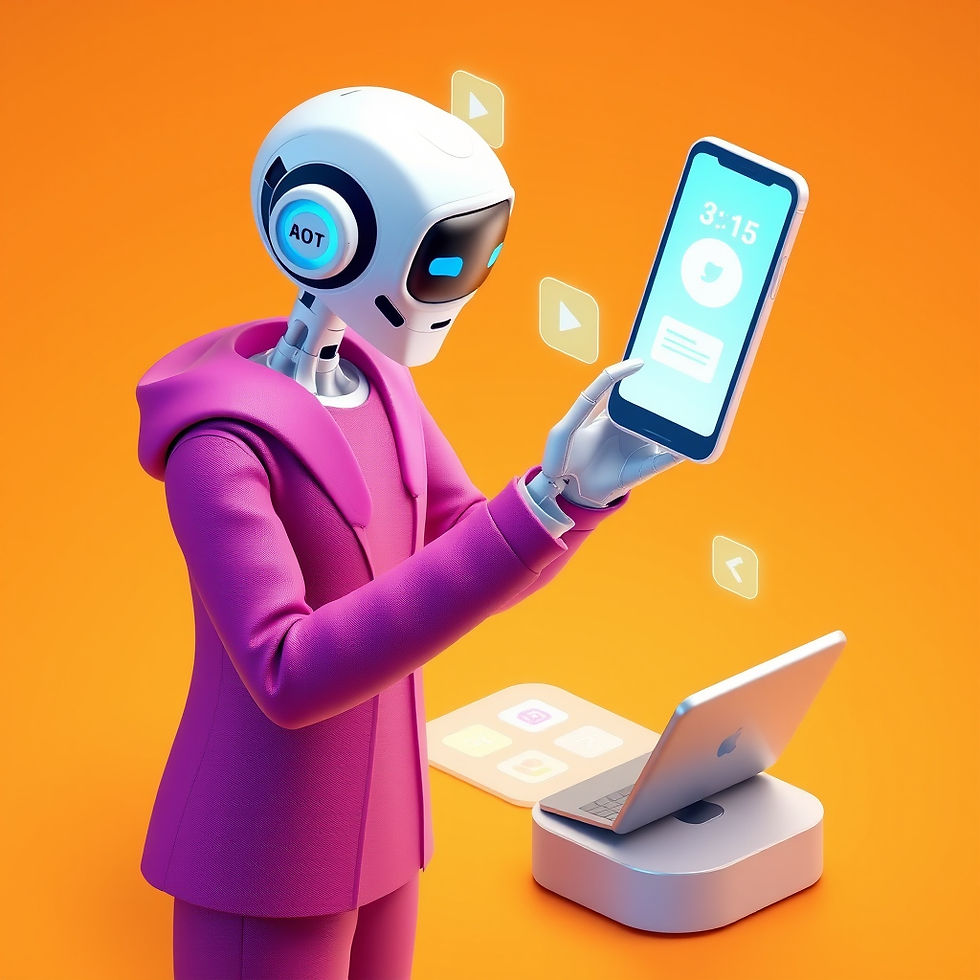How AI Agents Are Transforming App Management in 2025
- AI AppAgents Editorial Team

- Sep 24, 2025
- 3 min read
Updated: Sep 27, 2025

Artificial Intelligence (AI) has increasingly become a driving force across industries, transforming how businesses operate and how consumers use digital technology.
By 2025, AI agents are no longer abstract concepts or sci-fi fantasies; they are real, functional entities integrated into modern workflows. Their application is particularly revolutionary in app management, an area that touches nearly every sector — from medicine and banking to retail, education, and entertainment.
As applications have grown more complex, managing them has also become far more challenging. Ensuring uptime, security, and performance is now a monumental task for IT and development teams.
What Are AI Agents?
AI agents are autonomous software entities designed to sense their surroundings, process information, make intelligent decisions, and act with minimal human intervention.
Unlike traditional automation scripts that follow rigid rules, AI agents are adaptive — they learn, improve, and evolve through experience.
In app management, AI agents handle tasks that once required entire IT teams or complex management systems, such as:
Performance Monitoring – Tracking CPU usage, memory, server response time, and user interactions.
Issue Resolution – Detecting and fixing crashes, bugs, or bottlenecks before users even notice.
User Support – Acting as smart assistants or chatbots within apps.
Optimization – Managing resources to cut costs and boost productivity.
Personalization – Delivering customized experiences based on user behavior.
Why AI Agents Matter in App Management
The digital economy of 2025 is app-driven. From banking and healthcare to education and e-commerce, nearly every service relies on apps.
Traditional Challenges in App Management
Scalability Issues – Struggles during peak demand (holiday sales, product launches).
Security Threats – Rising cyberattacks require real-time detection.
Downtime Risks – Even minutes of outage can cost millions.
Manual Updates – Slower patching and innovation cycles.
How AI Agents Solve These
Automation – From monitoring to patch deployment.
Predictive Scalability – Anticipating usage growth before it happens.
Resilience – Identifying patterns to prevent crashes.
Efficiency – Smarter resource allocation, reducing costs.
AI agents shift app management from reactive firefighting to proactive orchestration.
Core Foundations of AI Agents
AI agents operate on a Perception → Reasoning → Action loop:
Perception – Collecting data from logs, sensors, APIs, and users.
Reasoning – Applying machine learning and inference to interpret data.
Action – Restarting services, scaling servers, or escalating to humans.
This enables them to act like skilled IT engineers — but with machine speed and accuracy.
Prime Features in 2025
Self-Healing Applications – Detect and fix anomalies automatically.
Intelligent Monitoring – Predict and prevent issues before they occur.
Automated Scaling – Dynamic resource adjustments during spikes.
Personalized User Experiences – Real-time customization for users.
Enhanced Security – Constant scanning for anomalies.
Continuous Learning – Improving with every resolved issue.
Practical Deployment
Cloud-Native Integration – Works seamlessly with AWS, Azure, Google Cloud.
Low-Code/No-Code Platforms – Drag-and-drop deployment without heavy coding.
AIOps – Automating IT operations at scale.
DevOps Automation – Enhancing CI/CD pipelines.
End-User Support – In-app assistants solving routine issues.
Key Advantages
🚀 Reduced Downtime – Predictive monitoring & self-healing.
💰 Lower Costs – Smarter cloud resource management.
🔒 Improved Security – Real-time anomaly detection.
😀 Better User Experience – Personalized, seamless app interactions.
Together, these lead to higher ROI, stronger customer trust, and market advantage.
Real-World Examples (2025)
E-commerce – 40% fewer app crashes during peak sales.
Healthcare – Critical downtime reduced by 50% in telemedicine apps.
Finance – Fraudulent transactions blocked within milliseconds.
Education – Adaptive learning with a 45% drop in playback errors.
Challenges to Consider
Data Privacy – Need for encryption and secure handling.
Cost of Adoption – Infrastructure, training, and AI models.
Skill Gaps – Requires AI and cloud expertise.
The Future of AI Agents
Looking beyond 2025:
🤝 Multi-Agent Collaboration – Apps working together across ecosystems.
🎨 Generative AI in App Design – Automated UI/UX creation.
🌐 IoT & Edge Integration – Real-time decisions on devices.
🎙 Conversational Management – Voice-controlled administration.
🧠 Autonomous App Ecosystems – By 2030, AI will handle everything from scaling to security.
Conclusion
By 2025, AI agents have evolved from prototypes to indispensable tools in app management. They enable organizations to scale, optimize resources, strengthen security, and deliver superior user experiences.
In the near future, AI agents will form the foundation of smart, autonomous app ecosystems, redefining how apps are designed, deployed, and maintained.



Comments